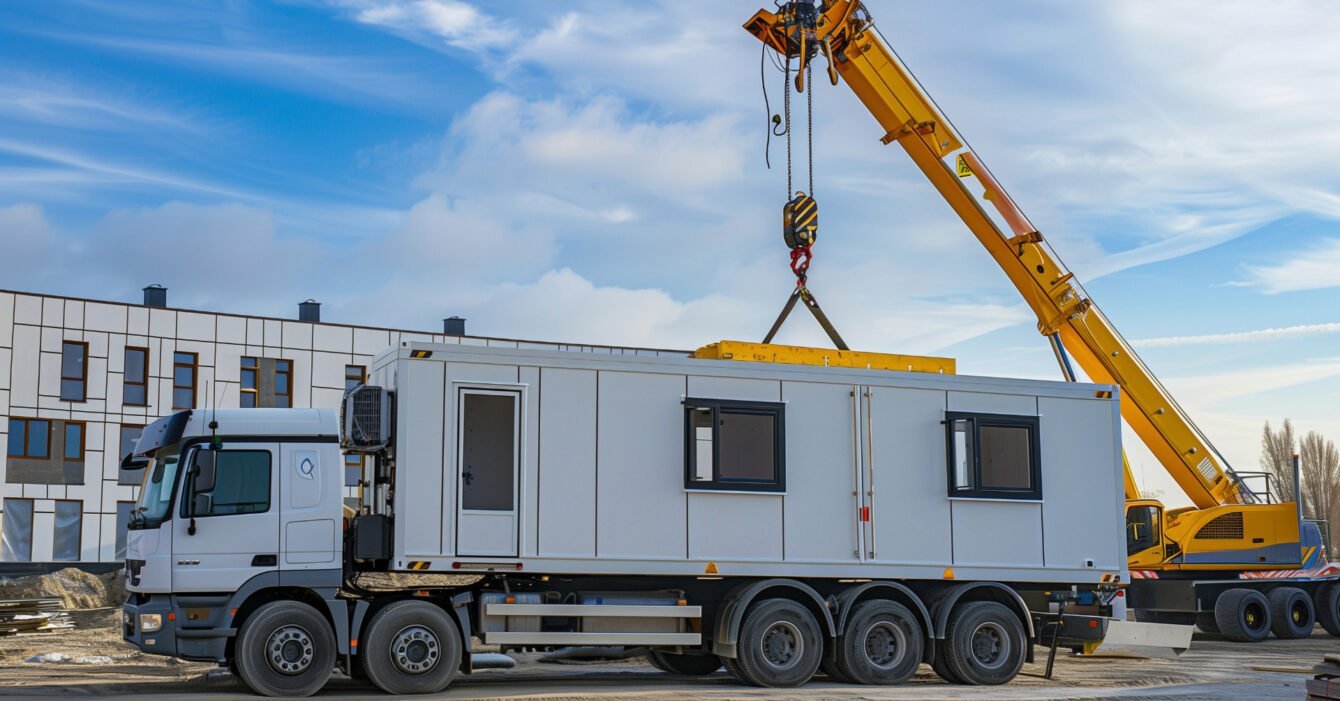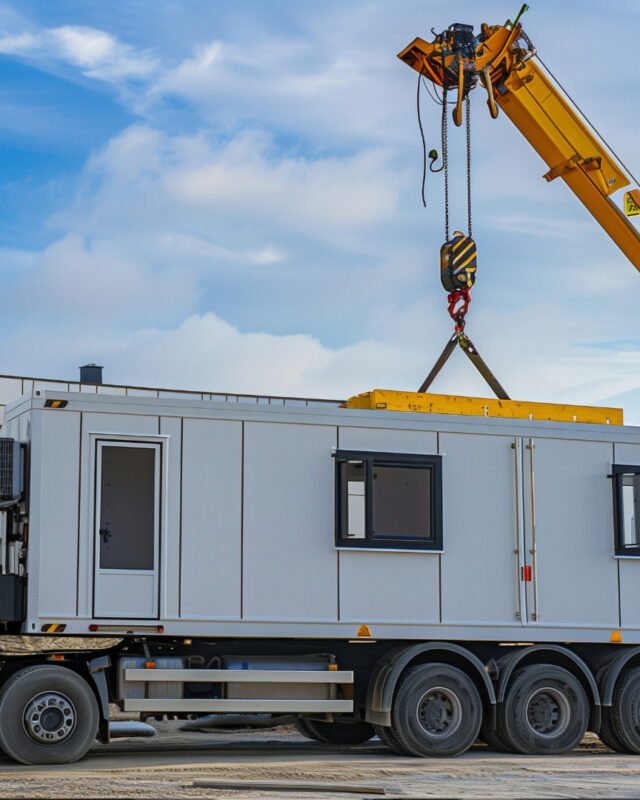The fast-moving consumer goods (FMCG) sector in Saudi Arabia is evolving rapidly, driven by changes in consumer demand, technological advancements, and supply chain efficiency needs. As FMCG companies strive to optimize operations and expand retail spaces, construction techniques such as modular design and rapid construction are becoming increasingly popular in FMCG distribution center design. These approaches offer cost-effectiveness, speed, and flexibility, transforming how FMCG distribution centers are designed and built.
Modular Design in FMCG Distribution Center Design
Modular construction refers to building structures from pre-fabricated components or modules that are assembled on-site. This process can be up to 75% faster than traditional construction methods, significantly reducing project timelines. For FMCG distribution centers, this speed is essential to quickly adapt to market changes and meet growing consumer demand. Modular units offer scalable solutions that can be easily expanded, modified, or relocated, providing FMCG businesses with the agility required in a fast-paced market.
One of the key benefits of FMCG distribution center design through modular construction is cost savings. By consolidating much of the construction work in a controlled off-site environment, companies can reduce labor costs and improve efficiency. Additionally, modular buildings are often energy-efficient, reducing long-term operating costs. This method also minimizes waste during construction, making it an eco-friendly option that aligns with growing sustainability goals in Saudi Arabia’s FMCG sector.
The Benefits of Modular Units for FMCG Warehouses
Modular units, also known as prefab offices or inplant buildings, are an essential part of modular design, offering a versatile and flexible solution for FMCG warehouses. These units can be custom-built to specific requirements, providing controlled environments such as clean rooms for sensitive materials or office spaces within warehouses. The ability to segment warehouse spaces with modular units allows FMCG companies to optimize their operations efficiently.
Several key benefits of modular units include:
- Cost Savings: Modular construction is typically more cost-effective due to reduced labor costs, energy efficiency, and tax benefits.
- Space Utilization: Modular units can be easily expanded or reconfigured as needed, making them ideal for growing businesses.
- Customization: FMCG businesses can implement tailored solutions that fit their unique operational needs, from clean rooms to machine enclosures.
- Time Savings: Modular units are quicker to build, as construction can take place simultaneously with site preparation.
- Reduced Disruption: Off-site construction minimizes disruptions at the facility, reducing dust and contamination, which is crucial for food-grade FMCG environments.
Rapid Construction Techniques: Speed and Flexibility
Rapid construction techniques, such as pre-engineered steel structures and prefabricated components, allow for the quick assembly of large FMCG distribution centers. These methods can significantly reduce construction times while ensuring that buildings meet the necessary safety and quality standards. The application of digital technologies, like Building Information Modeling (BIM), further enhances the construction process by allowing for detailed planning, reducing errors, and facilitating faster project completion.
As demand for e-commerce and omni-channel retailing continues to rise in Saudi Arabia, FMCG companies are under pressure to enhance their distribution capabilities. By employing rapid construction techniques, businesses can quickly establish or upgrade distribution centers, ensuring that they can keep pace with evolving market trends. This agility is particularly important in the competitive FMCG landscape, where supply chain delays can significantly impact a company’s profitability.
Sustainability and Efficiency in FMCG Distribution Center Design
Sustainability is becoming a priority in Saudi Arabia’s FMCG sector. Modular design and rapid construction techniques contribute to this goal by minimizing waste, reducing energy consumption, and allowing for the use of eco-friendly materials. With a focus on environmental impact, modular buildings can also incorporate renewable energy sources and energy-efficient systems to enhance overall sustainability.
As Saudi Arabia continues to invest in green technologies and infrastructure, FMCG companies that adopt sustainable construction methods will be well-positioned to align with national environmental goals while maintaining operational efficiency.
![]()
Conclusion
The adoption of modular design and rapid construction techniques is revolutionizing the way FMCG distribution centers are designed and built in Saudi Arabia. These trends provide significant advantages in terms of speed, flexibility, cost-efficiency, and sustainability, enabling FMCG companies to meet growing consumer demand and adapt to market changes with ease. As the FMCG sector continues to expand, embracing these innovative construction methods will be key to maintaining a competitive edge in the industry.


